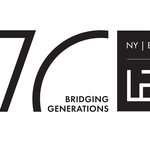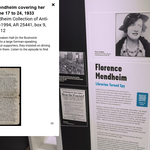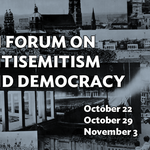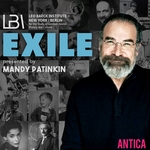Interview: Martha Minow on the Law, Memory, and Forgiveness

- Author
- David Brown
- Date
- Fri, Nov 1, 2019
The history of Jewish emancipation shows how the law made it possible for German Jews to achieve security as a minority, but in the end it wasn’t enough to protect them. What is required beyond the law to protect minority rights?
The law on the books, no matter how beautiful it is, is inadequate to prevent or remedy injustices like what happened to the German Jews in Nazi Germany. We also need to foster the development of professional ethics and strengthen the ecosystem of media and other checks and balances on both the government and the mass population. A key effort must involve education, especially in settings where people can be inculcated at a young age with a strong message about the value of human difference and the dignity of all human beings. The law is necessary for the protection of minority rights, but not sufficient.
Our archives are full of the documents of people who sought, and in some cases received, restitution and reparations for what the Nazis took from their families. Even if material reparations and restitution can never adequately repair the harm caused by Nazi persecution, can the German case serve as a model for other historic injustices?
There are elements of the story in Germany that are promising and elements that are disappointing. The aspect that I find most promising is the commitment to reexamining German history, both among professional historians and educators. If we neglect the memory work necessary to create a popular understanding of the underlying harm, then reparations or restitution can actually lead to backlash and a cycle of resentment.
You’ve written and spoken throughout your career on the idea of “forgiveness” in the law, and it’s the topic of your forthcoming book, When Should Law Forgive? Is forgiveness necessary to break that cycle of resentment and prevent future atrocities?
We live in an age of such resentment, and in the US those resentments have been squeezing the idea of forgiveness out of the law. Of course there is a tension between forgiveness and the stringent application of the law, but I find it fascinating that virtually all legal systems have some conception of amnesty. There is a long historical record of mass forgiveness of various violations and debt. We can read about them in the Bible, in Greek history, Egyptian history—and it was part of the history of many civilizations most of us no longer recall.
It is also built into parts of our own legal system. For instance, the idea of a fresh start is built into the notion of bankruptcy. Why not give people the same chance for a fresh start in our criminal justice system? Currently, people emerge from the criminal justice system burdened by a legal disability. As former felons, they have trouble accessing housing, credit, and other necessities. They do not get a fresh start, even after “doing their time.”
As far as whether forgiveness can prevent mass atrocities, I would say that the cycles of resentment that we are seeing currently are laying the groundwork for potential new atrocities. That actually poses dangers to democracy, stability, and the work of building a shared future. Breaking cycles of resentment and revenge is the purpose of the law and our social order, and we should harness the capacity of forgiveness to do so.
You’ve written in the past about finding a balance between “too much memory,” which risks perpetuating these cycles, and “too much forgetting,” which erases the victims. How do we strike the balance?
There is no one recipe, but I’ve been struck by the creative approaches to memorials in Germany that have inspired other artists and educators. For the new Legacy Museum: From Slavery to Mass Incarceration and the National Memorial for Peace and Justice in Alabama commemorating lynching, Bryan Stevenson studied memorials in Germany. He and others quite brilliantly came up with the idea of creating a central repository of small markers documenting known cases of lynching. Local communities can claim those markers, thereby spreading the message geographically. This central repository of knowledge remains however. When the markers go unclaimed, it says something very powerful. Visitors to the museum see all the unclaimed memorials and know how much more work there is to be done. I think that very few of the markers have been claimed to date.
Historians have debated whether the Holocaust can be compared with other mass atrocities, but what about the invocation of Nazi persecution in our current political discourse, for example in the debate about detention centers for undocumented immigrants in the US?
One of the constant insights that the German-Jewish experience underscores is that even the most accomplished and seemingly integrated group can be vulnerable to the worst forms of human destruction. From a legal point of view, that exposes the limitation of relying on domestic law to protect human rights. International law and international human rights have a long history, but they really came into formation after WWII. That project is in trouble. The institutions created to enforce international human rights law have been weakened. The US was once the backbone of that movement, and in recent years we have claimed to be exceptional and apart from it. That development should worry anyone who looks at the story of the German-speaking Jews.
As to the issue of detention centers—including the new rule allowing indefinite detention of children in prison-like circumstances—there’s no need to get into an argument about whether or not they are concentration camps. All we need to know is that they are wrong, and we must mobilize legal and humanitarian and other resources against them, because what’s done in our name implicates all of us.
How have you put your ideas about the importance of education and memory into practice through your work with Facing History and Ourselves?
I have worked with Facing History and Ourselves since the early 1990s, and I’ve learned an enormous amount from the model that they have created of “two-generational education,”—a “teach the teachers” method. In service of the mission of stopping hatred and bigotry, their model also engages the head and the heart by placing the study of art and identity and emotion alongside the rigorous study of history and politics.
I chaired their Board of Scholars for many years, during which we held the conferences that were the testing grounds for our curricula, which we’ve used in South Africa, Argentina, and other communities around the world. Most recently, Facing History developed materials for programs in Northern Ireland and Canada that are giving students a framework for discussing some of the hardest features of their own societies. It’s worth learning the message: people make choices and choices make history.
From LBI News No. 108
Latest News





